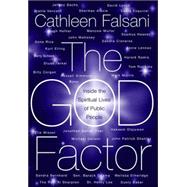
| Introduction | 3 | (4) | |
| Bono | 7 | (14) | |
| Hugh Hefner | 21 | (8) | |
| Sandra Bernhard | 29 | (10) | |
| Studs Terkel | 39 | (6) | |
| Senator Barack Obama | 45 | (8) | |
| Anne Rice | 53 | (6) | |
| Mancow Muller | 59 | (8) | |
| Billy Corgan | 67 | (10) | |
| Dusty Baker | 77 | (8) | |
| Iyanla Vanzant | 85 | (8) | |
| Barry Scheck | 93 | (8) | |
| David Lynch | 101 | (6) | |
| Sandra Cisneros | 107 | (10) | |
| Hakeem Olajuwon | 117 | (6) | |
| Tom Robbins | 123 | (10) | |
| John Mahoney | 133 | (8) | |
| John Patrick Shanley | 141 | (8) | |
| The Reverend Al Sharpton | 149 | (8) | |
| Annie Lennox | 157 | (8) | |
| Seamus Heaney | 165 | (4) | |
| Jonathan Safran Foer | 169 | (8) | |
| Mark Morris | 177 | (6) | |
| Jeffrey Sachs | 183 | (8) | |
| Laura Esquivel | 191 | (8) | |
| Sherman Alexie | 199 | (8) | |
| Harold Ramis | 207 | (10) | |
| Russell Simmons | 217 | (8) | |
| Michael Gerson | 225 | (8) | |
| Dr Henry Lee | 233 | (8) | |
| Melissa Etheridge | 241 | (8) | |
| Kurt Elling | 249 | (4) | |
| Elie Wiesel | 253 | (8) | |
| Afterword | 261 | (6) | |
| Acknowledgments | 267 |
The New copy of this book will include any supplemental materials advertised. Please check the title of the book to determine if it should include any access cards, study guides, lab manuals, CDs, etc.
The Used, Rental and eBook copies of this book are not guaranteed to include any supplemental materials. Typically, only the book itself is included. This is true even if the title states it includes any access cards, study guides, lab manuals, CDs, etc.
Excerpted from The God Factor: Inside the Spiritual Lives of Public People by Cathleen Falsani
All rights reserved by the original copyright owners. Excerpts are provided for display purposes only and may not be reproduced, reprinted or distributed without the written permission of the publisher.